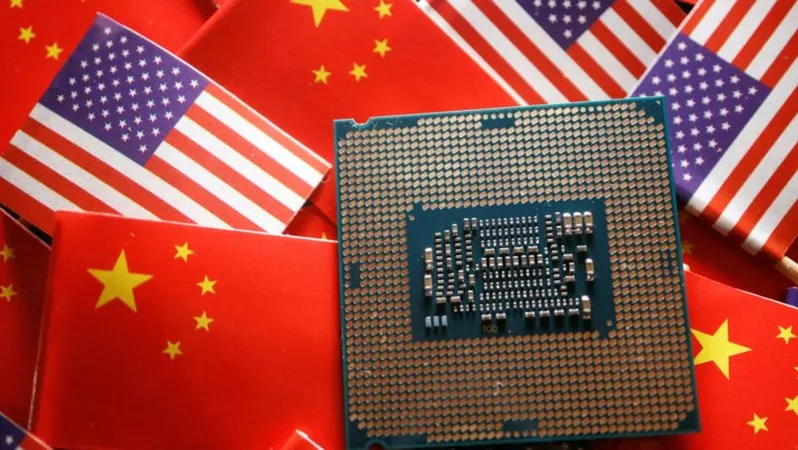
US Moves to Curb Investment in Chinese Tech: What You Need to Know!
2024-10-29
Author: Ming
US Moves to Curb Investment in Chinese Tech: What You Need to Know!
In a decisive move regarding national security, the Biden administration has finalized new regulations that will limit U.S. investments in sensitive technologies in China, particularly in areas like semiconductors, artificial intelligence, and quantum computing. According to a statement from the Treasury Department released on October 28, these restrictions will take effect on January 2, 2024.
Details of the New Regulations
The new rules will prohibit U.S. companies, citizens, and permanent residents from engaging in transactions that involve advanced technologies believed to pose a direct threat to American security. Investors will also be required to disclose any investments in certain lesser-developed technologies that could still contribute to national security risks. This includes investments in legacy semiconductor technology, crucial for many contemporary tech operations.
Official Statements
Paul Rosen, the Treasury’s assistant secretary for investment security, emphasized the importance of these technologies for military and cybersecurity applications. “Artificial intelligence, semiconductors, and quantum technologies are fundamental to the development of the next generation of military, surveillance, intelligence, and cybersecurity applications,” Rosen stated. He added that the aim of these targeted measures is to prevent U.S. investments from inadvertently supporting adversaries who might exploit these technologies against American interests.
Background
This regulatory action stems from an executive order signed by President Biden in August, which sought to restrict specific investments in high-tech sectors in China, including regions like Hong Kong and Macau. The executive order reflects ongoing tensions between the U.S. and China over technology and trade, accompanied by fears of potential espionage and military advancements.
Chinese Response
In a swift response, the Chinese foreign ministry criticized the U.S. move, labeling it an effort to promote anti-globalization and "de-sinicisation." The ministry expressed strong dissatisfaction and insisted on its rights to safeguard national interests against what it perceives as hostile actions.
Conclusion
As global markets and tech industries brace for the implications of these new curbs, the situation raises critical questions about the future of U.S.-China technology relations. As the world watches, the Biden administration continues to navigate this complex landscape of national security and economic strategy.
Stay tuned for the latest updates!
Stay tuned for the latest updates on how these regulations will reshape the tech investment landscape!



 Brasil (PT)
Brasil (PT)
 Canada (EN)
Canada (EN)
 Chile (ES)
Chile (ES)
 España (ES)
España (ES)
 France (FR)
France (FR)
 Hong Kong (EN)
Hong Kong (EN)
 Italia (IT)
Italia (IT)
 日本 (JA)
日本 (JA)
 Magyarország (HU)
Magyarország (HU)
 Norge (NO)
Norge (NO)
 Polska (PL)
Polska (PL)
 Schweiz (DE)
Schweiz (DE)
 Singapore (EN)
Singapore (EN)
 Sverige (SV)
Sverige (SV)
 Suomi (FI)
Suomi (FI)
 Türkiye (TR)
Türkiye (TR)